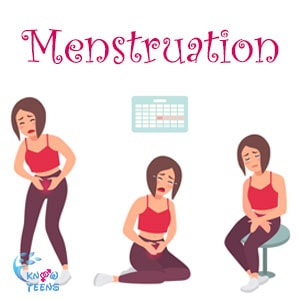What is Meant by Menstruation or Menarche? Are They Different?
Menstruation, otherwise called periods or menses, is a discharge of blood called the bleeding, along with little tissue from the inner lining of the uterus through the vagina. Such bleeding usually lasts for a period of three to five days on an average. Girls, who have attained puberty, can expect the menstruation cycle to occur on a monthly basis with an average of 28 days ‘gap between two periods. Menstruation may start around the age of 10 – 13 years of age and would continue till the age of 48 – 52 years. The first menstrual cycle that the girl undergoes is referred to as menarche. The menarche is usually influenced by a lot of factors such as genetic, environmental conditions and especially, the nutritional factors.
The menstruation process is usually to prepare the female body for the pregnancy by controlling two important hormones of the body, estrogen and progesterone that are necessary for the normal working conditions. It should be noted that having a regular menstrual cycle indicates that the most important part of a female body is working in a very normal condition; hence, it not necessary to panic about the bleeding.
Sometimes, teenagers who have crossed the age of sixteen might not have experienced menarche yet. The condition is referred to as amenorrhea. In such conditions, it is better to consult a doctor, so as to ensure that there are no hormonal imbalances.
The menstrual cycles do not generally occur during the pregnancy and breastfeeding time. Around 45 to 55 years of age, adult ladies undergo a process called menopause, after which the ladies might lose their fertility and hence the menstrual cycles also stop permanently. Losing fertility means that the ladies will be no longer able to reproduce and given birth to a child.
See Also: What are the biological reasons for having menstruation?







